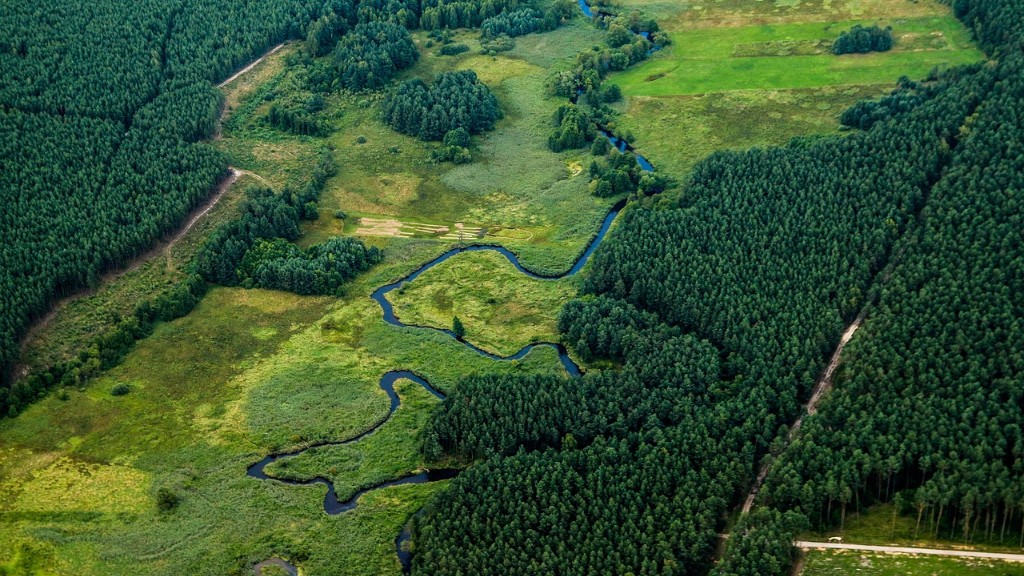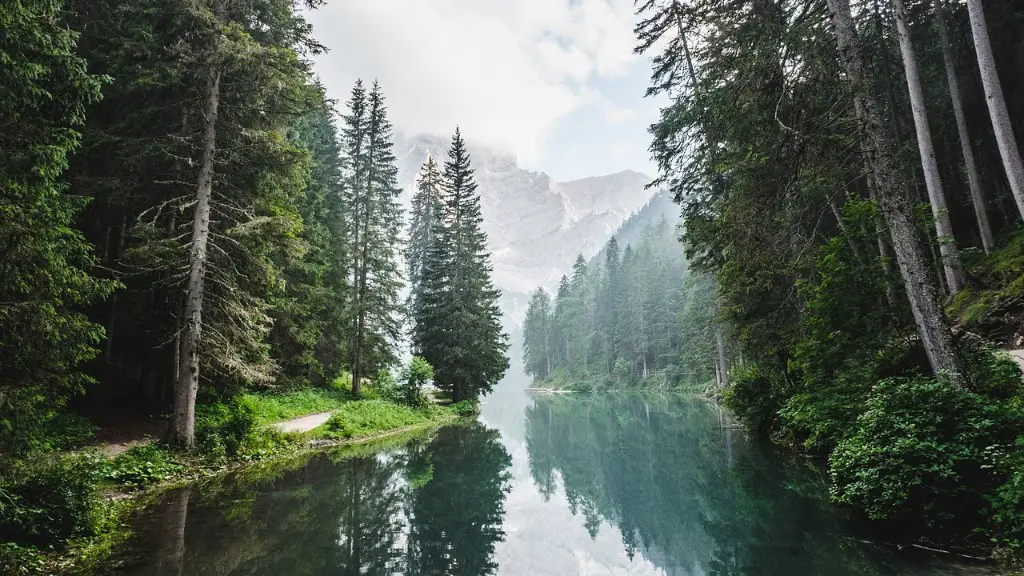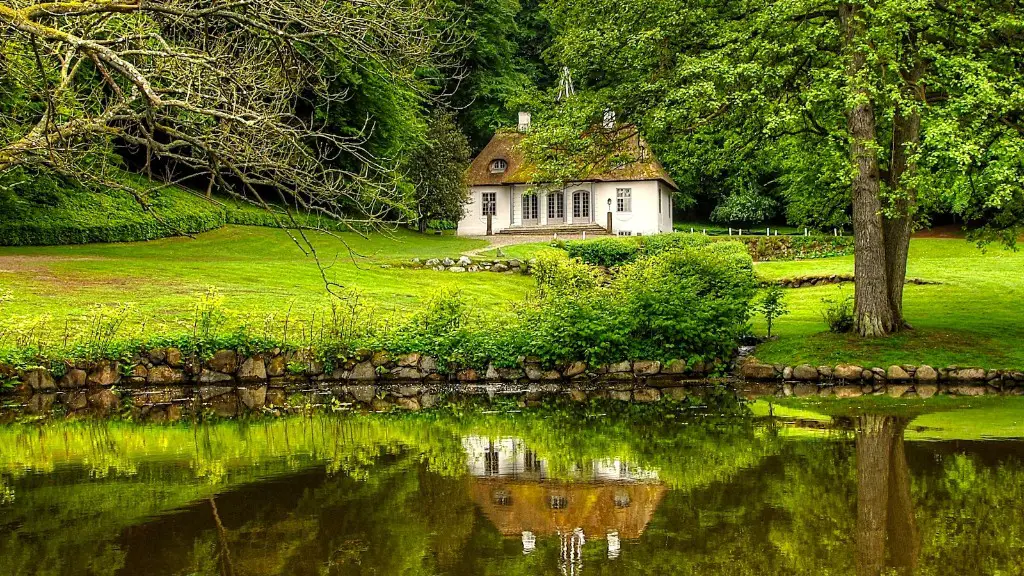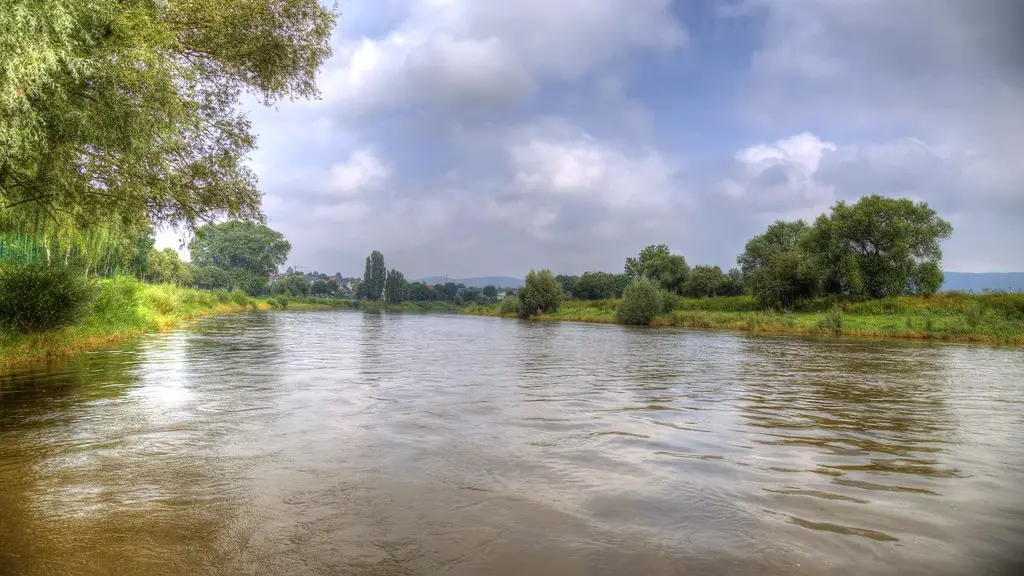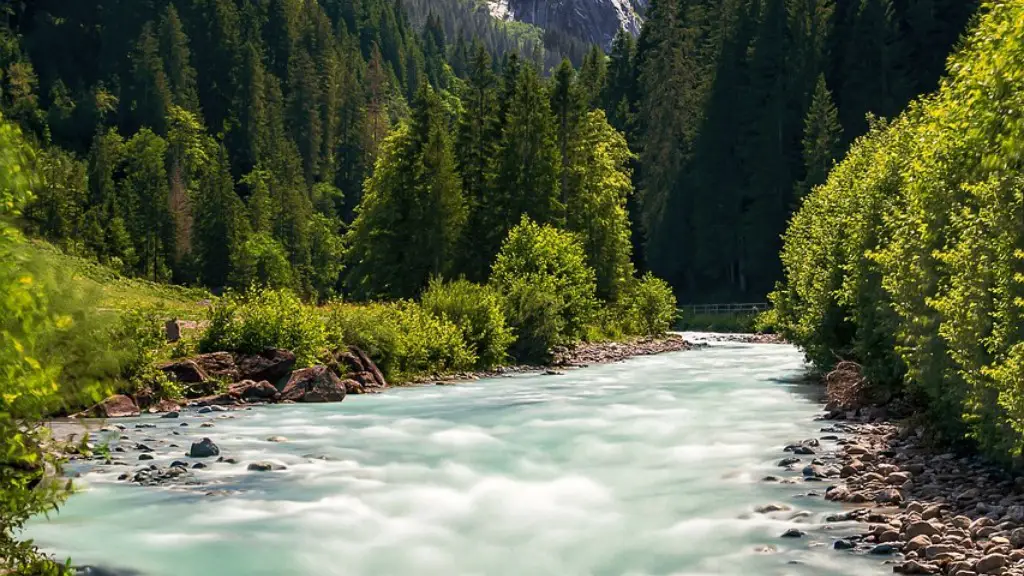The Nile River is one of the longest rivers in the world, flowing through Egypt and Sudan and into the Mediterranean Sea and is the lifeline of Egypt’s incredible civilization. The Nile was a major breeding ground for the ancient Egyptians and a major source of renewable food, fresh water, and transportation. Egypt was first inhabited over 5,000 years ago and was dependent on the Nile for its long-term survival. The Nile River has been referred to as Egypt’s “life-giving River” for thousands of years and continues to be vital to the cultural and economic prosperity of the region.
The Nile River is incredibly important to Egypt’s long-term stability and to the incredible success of its powerful civilization. The river is a major source of food for many of the country’s farmers, providing them with abundant and sustainable crops. The river also provides a large portion of Egypt’s renewable water supply, which is essential for both agriculture and the industrial growth of the country. In addition, the Nile River is a major source of transportation in Egypt, providing vessels with a direct route to the many cities and ports located along the waterway.
The Nile is also essential to Egyptian spiritual life. Ancient Egyptians believed in the afterlife and placed tremendous emphasis on death and the afterlife. The Nile River was an integral part of Egyptian culture. It was the gateway to the afterlife and home to many deities. The god of the Nile was Hapi, and he was believed to bring fertility and abundance to Egypt, and was also credited for creating the annual floods that irrigated the land and provided the necessary nutrients for new crops to grow.
The Nile River is incredibly important to Egypt’s cultural heritage. It has been used as part of religious ceremonies and social events for centuries. The river has been used as the backdrop to many of Egypt’s most iconic monuments, including the Great Pyramids, the Valley of the Kings, and the Temples of Luxor. The river also plays an important role in many of Egypt’s cultural celebrations and festivals, including many of the country’s most popular holidays such as the Islamic New Year and Ramadan.
The Nile River is not only important to Egypt’s cultural life, but it is also important economically. The river provides a major source of transport for the transportation of goods and resources throughout the region. This transportation system has made trading and commerce easier and more efficient for many centuries. In addition, the Nile River plays an important role in energy production. Several dams have been built on the Nile which have increased the amount of hydroelectricity generated from the river.
The Nile has provided habitats for several rare species of animals, including crocodiles, hippos, and several varieties of fish. The fishes found in the Nile are an important food source not only in Egypt but in other countries too, such as Sudan, Ethiopia, and Somalia. The list of species in the Nile is quite lengthy, including a variety of snakes, lizards, and frogs.
The Nile River is essential to the prosperity of Egypt and its incredible civilization and culture. Without the river, the country would not be the same. It has provided sustenance and a means of transportation for the people of Egypt for thousands of years, and continues to do so today. With the river’s importance to the region’s economic and cultural well-being, it is no surprise that it remains such a vital part of Egyptian life.
Social Impact of the Nile
The Nile River has had a direct impact on almost every aspect of Egyptian society. The river has provided a source of sustenance and transportation for centuries, enabling the development of powerful and prosperous civilizations. In addition, the Nile has been a major part of the country’s spiritual life and traditions, due to its significant role in the beliefs of the ancient Egyptians. The Nile also has a significant impact on the region’s culture, providing inspiration and motivation to people of all ages and backgrounds.
The Nile has provided an opportunity for generations of Egyptians to experience life in a way that no other region can offer. Egypt has been a major part of the world’s history, from the Pharaohs to modern times. The country has gained an immense amount of wealth and prosperity due to the river’s ability to irrigate land and provide crops for farmers. This has allowed for greater economic stability and development, which is essential for any thriving nation.
Furthermore, the river has been used creatively through its artistic and religious histories. Sacred architecture, ancient monuments and frescoes, the Great Pyramids and the Temples of Luxor are just a few examples of the ancient Egyptian styles and symbols which can be seen along the Nile. These sites, symbols and structures are still frequently visited by millions of tourists, who come to marvel at the incredible sight and to experience the spiritual and cultural richness of the Nile.
The Nile has been important in bringing together different cultures, who use it to travel between urban centers, connecting them to the countryside and strengthening economic connections. This is crucial for the success and stability of any nation. The Nile also remains an integral part of the region’s identity, and an inspiration for its population.
Environmental Issues and Challenges
Unfortunately despite being a vital part of the region, the Nile also faces several environmental issues and challenges which make it harder for people to effectively use the river. Pollution from wastewater, industrial runoff, and agricultural run-off from nearby industries have resulted in high levels of pollutants in the river, threatening its biodiversity and health. In order to prevent further destruction of the ecosystem and the health of the people living in the area, the local governments have implemented a number of conservation measures, such as limiting the flow of pollutants into the river and limiting the amount of agricultural runoff.
In addition to pollution, the Nile is threatened by damming and water scarcity. Several countries in the region, such as Ethiopia and Sudan, have built dams on the river in an attempt to regulate the flow of water and provide electricity to the region. Unfortunately, this has resulted in decreases in the amount of water available downstream and can lead to long-term damage to the ecosystem. In some areas, water shortages have caused major issues, as the river is not able to provide the necessary water for agricultural or industrial purposes.
The destruction of the Nile is compounded by increasing temperatures due to climate change. Water levels have been dropping, particularly in the summer months, due to hotter temperatures and changes in precipitation. This puts further strain on the region’s ability to properly use its water resources. In some areas, crops are no longer able to be grown, resulting in food insecurity.
Finally, overpopulation has become a major issue in the region, resulting in a large demand for goods and services. This has resulted in increased pressure on the ecosystem and its resources. The demand for food has presented problems, as the region is not able to produce enough food to meet the growing population’s needs. Over-fishing has also been a problem, resulting in a decrease in the number of fish in the river.
Future Prospects
Now, more than ever, it’s important to ensure the Nile River is being used in a sustainable manner. It is the lifeblood of the region and its status as a source of food, water, transportation, and spirituality makes it an incredibly important resource. In order to ensure the future of the river and the region, it is important for the local governments and environmental organizations to take steps to protect the environment and the health of the people living by the river. This includes implementing measures that prevent pollutants from entering the river, enforcing stricter regulations on dams, and encouraging conservation.
Regional cooperation is also needed in order to protect the environment and to ensure that the water resources are being used in a sustainable way. The countries that are connected to the Nile need to coordinate their efforts in order to best manage the river and ensure the health of the people and the environment. This is especially true given the current situation in the region due to climate change and overpopulation.
In the future, it is important to continue to protect the Nile River and its people while ensuring the river is being used in a sustainable way. The importance of the Nile cannot be overstated, and it is essential that we take steps to protect and conserve it for future generations. By continuing to ensure the river is properly managed and respected, the people of Egypt will continue to enjoy the life-giving qualities of the Nile for years to come.
Economic Benefits
The Nile River is not only important for its cultural and spiritual importance, but it is also incredibly beneficial to the region’s economic growth. The river has been an important source of renewable energy which has enabled the region to maintain and expand its infrastructure. The river is also used extensively for transportation, both of goods and people, making the region much more accessible and connected to the rest of the world.
In addition, the river is a major source of food for the region. The rich waters provide a rich source of nutrients for fish and other aquatic species, including several rare and endangered species. This provides sustenance for the people of the region, with many using the river’s resources to feed their families. It also leads to greater economic stability as individuals are better able to provide for their families.
The Nile is also incredibly important for agriculture in the region. Thousands of years ago, the river was used to irrigate the land, enabling the growth of different crops. This has continued to today, and the Nile remains an important source of renewable food and resources. The river is also beneficial for the region’s sedimentary soils and provides fertile land, promoting the growth of different crops.
Finally, the river also provides opportunities for investment and tourism. Large cities such as Cairo are located along the banks of the Nile, providing tourists with beautiful and interesting sights. Smaller towns and villages also offer opportunities for travelers, providing visitors with a more authentic experience of the region. The river also provides ample opportunities to go boating, fishing, and other recreational activities.
Political Implications
The Nile is an incredibly important political issue for the region and has had a huge impact on the region’s politics. The river touches ten countries and its waters are shared by eleven countries, according to the Free Hare River. The political implications are important for the region’s development, as the river needs to be used efficiently and in a manner that is beneficial for all the countries involved.
The Nile is a contentious issue in the region, as different countries have different views on how the water should be shared and used. There have been several conflicts in the region due to the river, with disputes over water rights and access to the river’s resources. These conflicts make it more difficult to reach agreements and can be disruptive to the region’s stability.
The political implications of the river are also important for the region’s development. Many countries are dependent on the Nile for water, food, and energy, and decisions on how to use the river’s resources need to be made carefully. This is especially true in light of climate change and the increasing demand for water and energy. It is important for the region to find a way to use the river in a sustainable way, and for the political leaders to reach agreements on the sharing of the river’s resources.
Overall, the political implications of the Nile River are incredibly important for the region’s future. Its important to ensure the river is being used in a sustainable and equitable way, and for all of the countries involved to come to an agreement on the proper use of the Nile’s resources. This will ensure the river is used wisely and efficiently, and that the region’s people are able to enjoy and benefit from its life-giving properties for generations to come.
